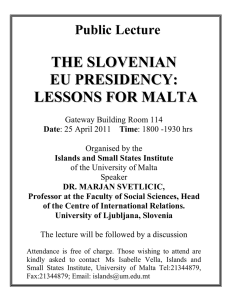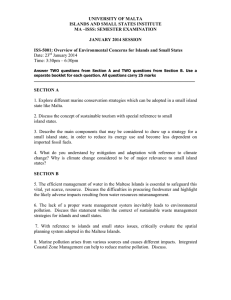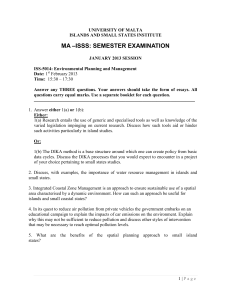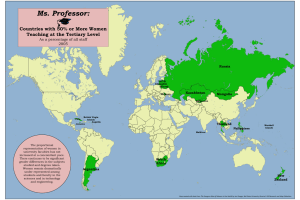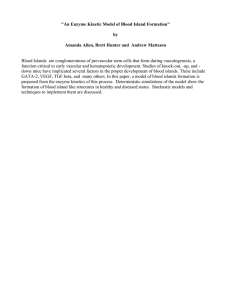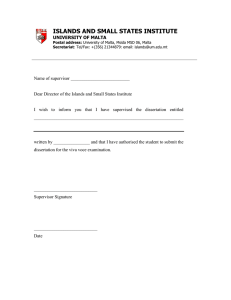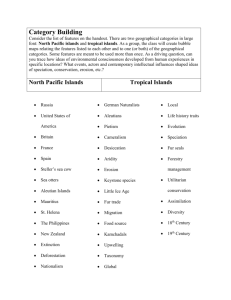UNIVERSITY OF MALTA ISLANDS AND SMALL STATES INSTITUTE MA –ISSS: SEMESTER EXAMINATION
advertisement
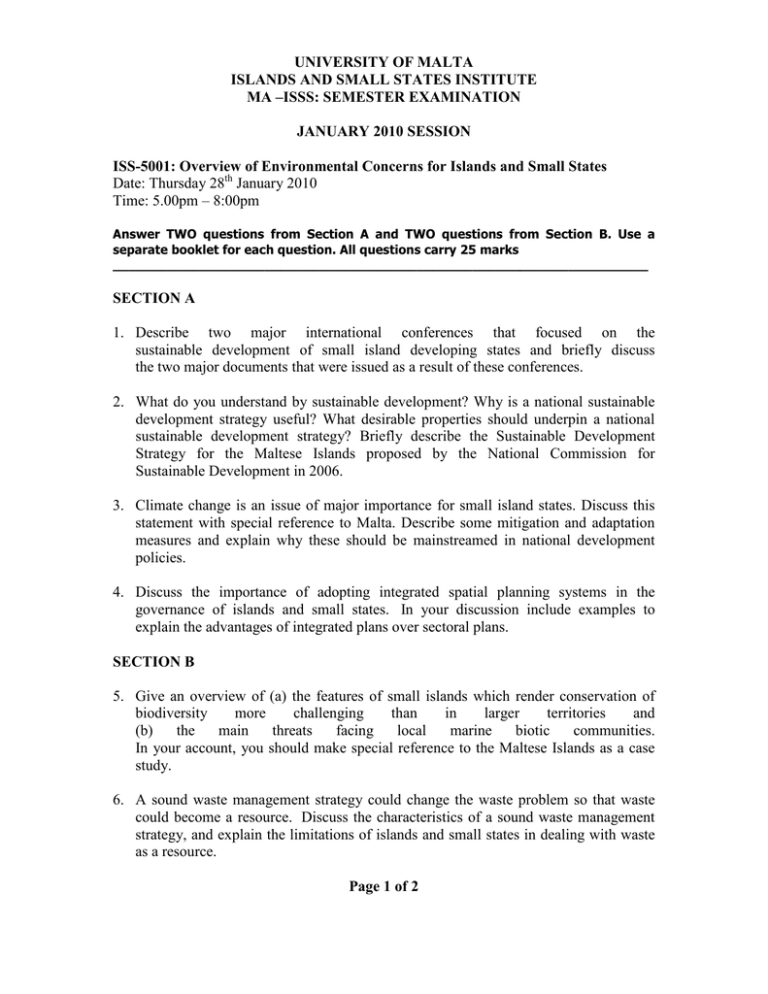
UNIVERSITY OF MALTA ISLANDS AND SMALL STATES INSTITUTE MA –ISSS: SEMESTER EXAMINATION JANUARY 2010 SESSION ISS-5001: Overview of Environmental Concerns for Islands and Small States Date: Thursday 28th January 2010 Time: 5.00pm – 8:00pm Answer TWO questions from Section A and TWO questions from Section B. Use a separate booklet for each question. All questions carry 25 marks ___________________________________________________________________ SECTION A 1. Describe two major international conferences that focused on the sustainable development of small island developing states and briefly discuss the two major documents that were issued as a result of these conferences. 2. What do you understand by sustainable development? Why is a national sustainable development strategy useful? What desirable properties should underpin a national sustainable development strategy? Briefly describe the Sustainable Development Strategy for the Maltese Islands proposed by the National Commission for Sustainable Development in 2006. 3. Climate change is an issue of major importance for small island states. Discuss this statement with special reference to Malta. Describe some mitigation and adaptation measures and explain why these should be mainstreamed in national development policies. 4. Discuss the importance of adopting integrated spatial planning systems in the governance of islands and small states. In your discussion include examples to explain the advantages of integrated plans over sectoral plans. SECTION B 5. Give an overview of (a) the features of small islands which render conservation of biodiversity more challenging than in larger territories and (b) the main threats facing local marine biotic communities. In your account, you should make special reference to the Maltese Islands as a case study. 6. A sound waste management strategy could change the waste problem so that waste could become a resource. Discuss the characteristics of a sound waste management strategy, and explain the limitations of islands and small states in dealing with waste as a resource. Page 1 of 2 7. What real and potential water resources are available to small islands? How can an integrated approach to water resource planning and management assist small islands in mitigating water scarcity? 8. Most sources of marine pollution arise from land-based activities. What actions can be taken to reduce this type of pollution through coastal zone management practices? Illustrate your answer with examples. 9. Describe the main components that may be considered by a small state in drawing up a strategy, in order to reduce energy use and become less dependent on imported fossil fuels. Page 2 of 2
